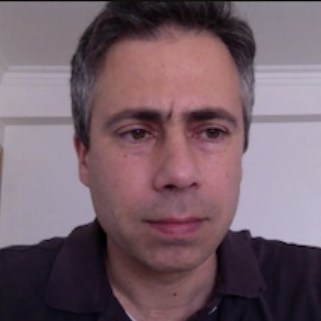Combining Logics and Theories
A special issue of Logics (ISSN 2813-0405).
Deadline for manuscript submissions: closed (10 November 2023) | Viewed by 1493
Special Issue Editors
Interests: logics and theories and their combination (e.g., meet, importing, fibring); properties of logics and their preservation, including decidability; deductive systems; evidence, probability, and quantum logics
Special Issues, Collections and Topics in MDPI journals
Interests: logics and theories and their combination (e.g., meet, importing, fibring); preservation of properties of logics and theories under combination; proof theory; evidence, probability, and quantum logics
Special Issues, Collections and Topics in MDPI journals
Special Issue Information
Dear Colleagues,
Despite the great variety of logics that exist nowadays, it is not common to find a logic allowing for reasoning with several concepts simultaneously, such as time, space, belief, knowledge, necessity, possibility, obligation and action, among others. A similar phenomenon occurs when working with theories. Although this specialization allows each logic/theory to capture with great precision the envisaged concept, in most of the cases, it requires that we work with several notions at the same time. The pioneering works on combining logics and theories can be traced back to the studies of Barwise in 1974 and to Thompson, Janiczak and Rogers in 1952-1956 on categorical relationships between logics and on the combination of theories, respectively. Since then, there have been significant research efforts in both fronts. Several mechanisms have been proposed for combining logics, such as products of modal logics (Shekhtman 1978), fusion (Thomason 1980) and fibring (Gabbay 1992), together with preservation results. At the forefront of theories is the combination mechanism, demonstrating excellent joining and preservation results, having been established by Pigozzi in 1974 and elaborated by Nelson and Oppen in 1979.
This Special Issue aims to gather high-quality papers presenting various combinations of logics and theories and their applications.
Original research articles and reviews are welcome. Research areas may include:
- Applications of combinations of logics/theories to the sciences, law and philosophy;
- Categorial and algebraic accounts of the combination of logics and theories;
- Combinations and modularity in ontologies;
- Combinations and modularity in term rewriting;
- Combination methods in automated reasoning;
- Combination of data types;
- Combination of logics ;
- Combination of theories;
- Deductive systems for combination;
- Institutions and combination;
- Preservation results;
- Products of logics;
- Satisfiability modulo theories.
Prof. Dr. Cristina Sernadas
Dr. João Rasga
Guest Editors
Manuscript Submission Information
Manuscripts should be submitted online at www.mdpi.com by registering and logging in to this website. Once you are registered, click here to go to the submission form. Manuscripts can be submitted until the deadline. All submissions that pass pre-check are peer-reviewed. Accepted papers will be published continuously in the journal (as soon as accepted) and will be listed together on the special issue website. Research articles, review articles as well as short communications are invited. For planned papers, a title and short abstract (about 100 words) can be sent to the Editorial Office for announcement on this website.
Submitted manuscripts should not have been published previously, nor be under consideration for publication elsewhere (except conference proceedings papers). All manuscripts are thoroughly refereed through a single-blind peer-review process. A guide for authors and other relevant information for submission of manuscripts is available on the Instructions for Authors page. Logics is an international peer-reviewed open access quarterly journal published by MDPI.
Please visit the Instructions for Authors page before submitting a manuscript. The Article Processing Charge (APC) for publication in this open access journal is 1000 CHF (Swiss Francs). Submitted papers should be well formatted and use good English. Authors may use MDPI's English editing service prior to publication or during author revisions.
Keywords
- applications of combinations of logics/theories to the sciences, law and philosophy
- categorial and algebraic accounts of the combination of logics and theories
- combinations and modularity in ontologies
- combinations and modularity in term rewriting
- combination methods in automated reasoning
- combination of data types
- combination of logics
- combination of theories
- deductive systems for combination
- preservation results




